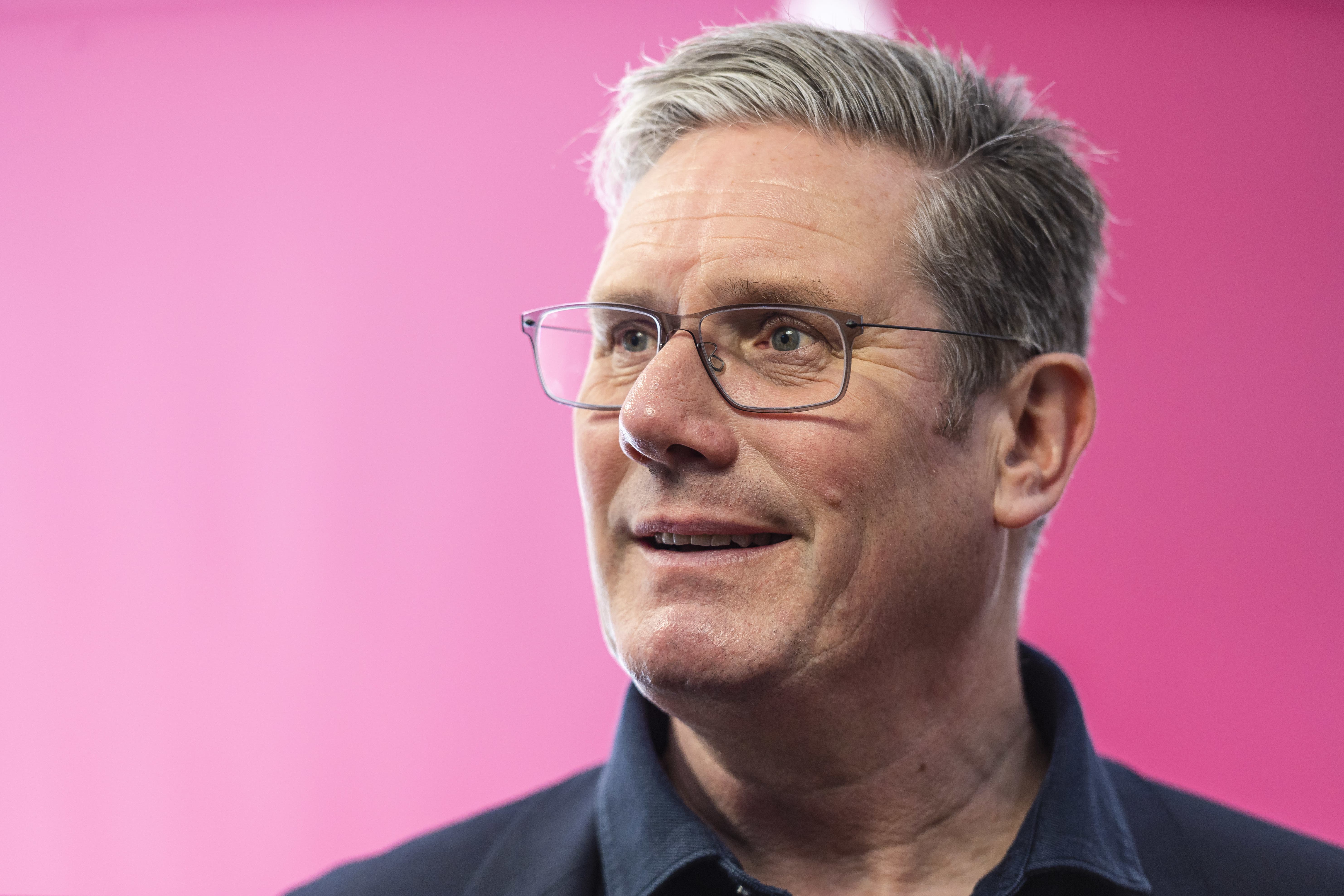Oil and gas needed for ‘many years to come’ – Starmer
The Labour leader has moved to reassure trade union critics that his party’s energy plans would not hit jobs.

Your support helps us to tell the story
From reproductive rights to climate change to Big Tech, The Independent is on the ground when the story is developing. Whether it's investigating the financials of Elon Musk's pro-Trump PAC or producing our latest documentary, 'The A Word', which shines a light on the American women fighting for reproductive rights, we know how important it is to parse out the facts from the messaging.
At such a critical moment in US history, we need reporters on the ground. Your donation allows us to keep sending journalists to speak to both sides of the story.
The Independent is trusted by Americans across the entire political spectrum. And unlike many other quality news outlets, we choose not to lock Americans out of our reporting and analysis with paywalls. We believe quality journalism should be available to everyone, paid for by those who can afford it.
Your support makes all the difference.Sir Keir Starmer has moved to reassure trade union critics that Labour’s energy plans would not hit jobs, claiming that oil and gas would be necessary for “many, many years” to come.
It comes after GMB union general secretary Gary Smith warned the party’s policy to ban new oil and gas extraction licences in the North Sea would create a “cliff edge” that will hit jobs.
Speaking on a visit to Hinkley Point C in Somerset on Monday, Sir Keir stressed that adapting to climate change and tapping new sources of energy would bring fresh opportunities.
“I think we have a once-in-a-generation opportunity now to seize the jobs of the future,” he told broadcasters.
“Oil and gas will be part of that, because where there is existing licences they will go on to the 2050s and so oil and gas will be part of our energy mix for many, many years to come.
“But we need to seize the opportunities for the next generation of jobs. And that is in renewables, it is in nuclear, Hinkley Point C here today, staring at the future.
“We have got 9,000 people working on this site, they are going to power the UK and they are the jobs of the future.”
He said that both Labour and the GMB wanted a “government with a strategic purpose that seizes those opportunities, doesn’t see job losses, actually sees an increase in the number of jobs, because we have taken the tough decisions to go forwards to the next generation of energy power for not just the next 10 years, but something like Hinkley Point C here, a 100-year project.”
It comes as Labour accused the Conservatives of a “shambolic” failure to open any nuclear power plants during 13 years of power.
The Labour leader vowed to “get Britain building” as he stressed the “critical” need for nuclear to drive growth, boost energy security and tackle the climate crisis.
His party claims the Tories’ failure to open any of the 10 nuclear sites approved under the last Labour government has cost 7,000 British jobs.
Despite Sizewell C and Hinkley Point C being identified in 2009, they are still not operational.
My government will lower household energy bills, create jobs and ensure Britain's energy security
Ahead of the visit, Sir Keir said the UK’s “ambition and potential grinds to a halt” under the Tories.
“The British people should be benefiting from our country’s natural resources, but the Tories’ woeful record is holding us all back,” he said.
“My government will lower household energy bills, create jobs and ensure Britain’s energy security.
“Nuclear is a critical part of the UK’s energy mix. It’s shambolic that after 13 years of Tory government, not one of the 10 nuclear sites approved by the last Labour Government have been built.”
Responding to Labour’s nuclear criticisms, a Tory spokesman said: “In 1997 the Labour Party cut the legs off Britain’s nuclear industry, declaring ‘no new nuclear’, nationalising British Energy and handing our energy dependency to China and France.
“That’s why there hasn’t been a nuclear power station built under the Labour Party since Britain had the shilling.
“The Conservatives started turning that around, delivering the first large-scale nuclear project Hinkley Point C and agreeing last year to begin Sizewell C.”